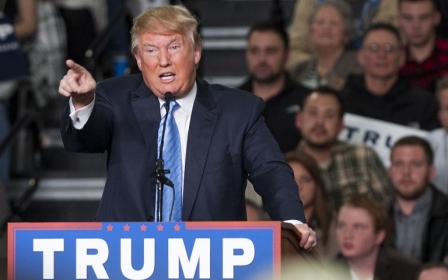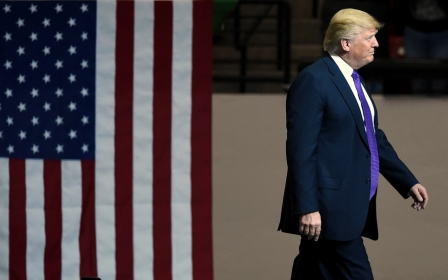Trump tackled over belief that 'a whole lot' of Muslims hate the US

Donald Trump came under fire on Friday after saying Muslims “hate” the US during a televised debate in which his Republican rival said Islam is facing “a serious crisis within”.
Trump and his challengers for the party's nomination have traded weeks of often below-the-belt barbs, but the four men took to the stage for a debate in Miami that was relatively policy heavy.
Trump, Texas Senator Ted Cruz, Ohio Governor John Kasich and Senator Marco Rubio of Florida tackled topics like immigration, visas and approaches to the terror threat. Rubio needs to pull off an upset win when his home state votes next Tuesday if he is to salvage his struggling campaign.
Trump at one point said he was surprised at how “civil” the debate had been.
But the controversial candidate went head-to-head with Rubio over Trump's comments earlier in the day, in which he railed against political correctness and said that “Islam hates” the US.
During the debate, Rubio sought to tackle Trump over the comments, saying he is “not interested in political correctness. I'm interested in being correct.”
Trump, however, refused to back down – asked by debate moderator Jake Tapper whether he believes “the world's 1.6 billion Muslims hate us,” Trump replied, “a whole lot of them, yup”.
Rubio, who is struggling with 20 percent of Republican primary support in Florida to Trump's 43 percent, insisted that “we are going to have to work with people in the Muslim faith even as Islam faces a serious crisis within it”.
"I know that a lot of people find appeal in the things Donald says,” Rubio countered. “The problem is presidents can't just say anything they want.”
Trump's controversial comments on Islam, including suggestions that he would seek to kill the relatives of terror suspects, have stoked warnings that such rhetoric promotes violence against Muslims.
Dr Suzanne Barakat, whose brother, sister-in-law and friend were shot dead execution-style in the February 2015 Chapel Hill shooting, has accused Trump of “essentially saying that an entire group of people are worthy of violence.
“He's not realising that these same words that are getting him points in the campaign are also the ones that are leading to potentially fatal outcomes.”
Stay informed with MEE's newsletters
Sign up to get the latest alerts, insights and analysis, starting with Turkey Unpacked
Middle East Eye delivers independent and unrivalled coverage and analysis of the Middle East, North Africa and beyond. To learn more about republishing this content and the associated fees, please fill out this form. More about MEE can be found here.




